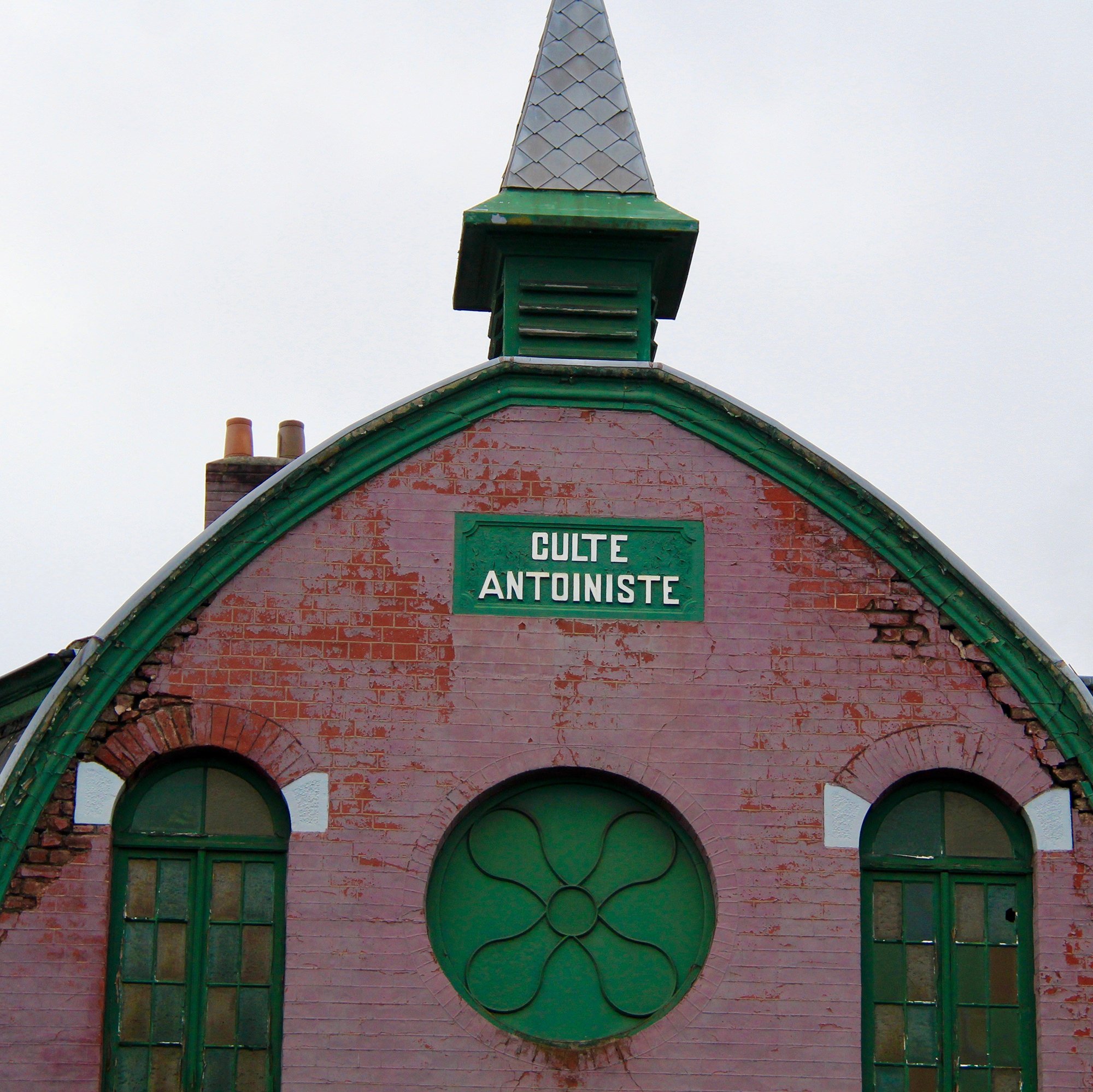Eat Only the Word of God
How a Pentecostal preacher in Kenya persuaded hundreds of worshipers to starve themselves — and their children — to death.
APRIL 16, 2024
This interview has been edited for length and clarity.
In March 2023, Kenya made international headlines when at least 429 bodies were exhumed from Shakahola forest in Kilifi, a town near Kenya’s Indian Ocean coast. The dead were all followers of a Pentecostal pastor, Paul Nthenge Mackenzie, who had persuaded hundreds of men and women to starve themselves and their children to death. The episode has since become known as the “Shakahola Massacre.”
Mackenzie, a 51-year-old taxi driver turned self-ordained preacher, faces charges of terrorism and 191 counts of child murder. In 2003, he founded Good News International Ministries, a Pentecostal church that lured hundreds of followers from across Kenya. Mackenzie persuaded acolytes to sell their lands and possessions and hand him the proceeds. Mackenzie insisted they wouldn’t need the funds: Christ’s second coming was imminent, and they’d all soon be going to heaven.
Combined with Charismatic Christianity, Pentecostalism, a type of evangelical Christianity that originated in the U.S. and U.K., claims some 600 million adherents across the globe. It surged across Africa in the 1950s and 1960s as African nations won their independence from European colonizers. By 2006, some 107 million Africans — 12 percent of the continental population — were adherents.
Good News International wasn’t Pentecostalism in its purest form. Rather it was a combination Ponzi scheme, cult and church. But religious scholars say that when it comes to Pentecostalism in particular, the line between these three is often blurred.
Attributes of the Pentecostalism may make some adherents ripe for radicalization, according to Dr. Julius Gathogo, Senior Lecturer of philosophy and religious studies at Kenyatta University in Mombasa. Gathogo believes Mackenzie recruited and radicalized his followers using similar tactics as the East African Islamist terrorist group Al-Shabaab, which massacred 148 students and others on the northern coast of Kenya in 2015 and 168 at Westgate Shopping Mall in Nairobi two years earlier, among other attacks.
Jacob Kushner, a Nairobi-based journalist, covered the Westgate attack and response. He spoke with Dr. Gathogo about what happens when Pentecostals’ infatuation with religious pundits turns deadly.
JACOB KUSHNER: When did Pentecostalism arrive in Kenya, and why is it growing today?
JULIUS GATHOGO: It was brought to Kenya in 1912 by Finnish missionaries. In 1949 these missionaries registered the gospel churches of Kenya. The colonial government did not like Pentecostalism. Kenya received independence in 1963. A few decades later, when the first multiparty election was held, that also opened the religious space. By the 21st century the Pentecostals were coming into politics. Pentecostals were now criticizing the government, contesting elections, going to parliament — even contesting the presidency. Pentecostals started entering all domains of civic life — issues of politics, economics. Some started their own universities.
Today the Pentecostals are rising through the youth. In Kenya, the Pentecostal movement makes up almost 35 percent of the population.
JK: What distinguishes Pentecostalism from other forms of Evangelical worship?
JG: The distinct thing about Pentecostalism is speaking in tongues (when someone speaks in a language only they can understand). All the years I’ve lived, and I’m almost 60, I’d never seen a church where someone speaks in tongues and another interprets it.
Another thing you expect in a Pentecostal church as opposed to mainland churches is erratic leadership. There’s much of what theologians are calling ‘big man syndrome.’ The Pastor has a larger-than-life profile. That man is like God! People are psyched to view this person as very close to God.
JK: What is it about Pentecostalism that resonates here?
JG: In genuine Pentecostalism, the weak are helped, they are assisted. The early church would even sell land so as to help the poor. The orphaned and the widows are taken care of by those who are richer.
JK: Paul Nthenge Mackenzie had been charged with radicalization a number of times before; once, police rescued 93 children from his custody at an unregistered school. What exactly did he preach against?
JG: Paul Mackenzie was just a taxi driver when he claimed to have received a call from God. His church grew because of his charisma.
He was sometimes accused of misleading children — “school is satanic, is evil,” he said. He was even accused of stopping kids from going to school. In 2019 a video came out that showed children ages 6-17 denouncing education. They were really radicalized, like al-Shabab! It’s just like when al-Shabab say women should not be educated.
Then came the Huduma number, a short-lived official Kenyan government service number (introduced in 2018), whereby you do not need an identity card but a service card to access all government facilities. He told his followers that this is a satanic number. He indoctrinated people to disobey civil authorities, to disobey police. He was advocating lawlessness — “you only have to follow the law of the heart, and the law of God.”
JK: Why was he not convicted, or at least, banned from the pulpit?
JG: He was charged with radicalization four times for his sermons, which incited people to reject government and its operations as satanic. They were encouraged to denounce the world. Say “no” to hospitals, schools, and “eat” only the “word of God.” Fasting to death became an important goal.
Each time, he was acquitted due to lack of evidence. He used his charisma to frighten those who came to arrest him. There are those who say he even used money to get himself released. He could bribe because he was a dirty man hiding under the banner of religion. But I think he used his charisma. Nobody wants to be seen as harassing a genuine pastor. Even the jailers.
As time wore on, neighborhoods in Kilifi County, on the coast, began to reject some of his extremist teachings. There was a time when people in Kilifi burned down one of his buildings. They said, we don’t want people teaching these things! This forced him to move to a more secluded area, the Shakahola Forest, which is further inland.
And then, finally, [it came] to the business of not eating at all — he told people they should fast to death. He would have them read books that were not usually part of the Protestant tradition. The ones that say after 1,000 years the world will come to an end. Deutero-canonical books that were rejected many centuries ago during the era of canonization are: Tobit, Judith, Baruch, Sirach (or Ecclesiasticus), 1 Maccabees, 2 Maccabees, Wisdom, and Additions to Esther among others. Paul Mackenzie largely quoted the book of Baruch which talks about the imminent destruction of Jerusalem and the implied world. Why are you wasting time marrying, eating … you should go to God!
He was only arrested in 2023, when Kenyan television networks exposed the matter. The Good News International Ministries was deregistered on August 18, 2023 by the Registrar of Societies in Kenya as part of government’s crackdown on unscrupulous churches.
JK: Did Mackenzie persuade, or force his congregation to fast?
JG: He had a militia! A militia that was eating very well and would force you back to the forest. They would beat you. They tell you, don’t eat anything until you die. It’s the very same as al-Qaeda, al-Shabab. You can’t leave the group; they will not allow you to get out.
He said he would meet Jesus last as others go hierarchically. Children die first, then women, then men, then his militia-like pastors who enforced fasting, and then he would be last to go to Jesus after death.
JK: Mackenzie used Pentecostalism not just for fame, but for money. Why did his followers oblige?
JG: Kilifi is really a poor area, so it’s easy to attract people when you come promising solutions to poverty. It’s just like Al-Shabaab, (the way) Paul Makenzie was recruiting. He was in the forest with 700, 800 congregants. He would tell them very appetizing things, about meeting God.
He enticed people all over the country to sell land. A man from the island of Lamu in 2016 was enticed to sell his prime land and brought 20 million shillings (then about $20,000) and then gave it to Mackenzie. He was radicalizing and indoctrinating people to sell their properties. We need this money as we wait for the day Christ is coming. Why do you need it yourself if you’re going to God?
After utilizing his indoctrinating charms, he would contradict some of his teachings, as he would denounce earthly materials and yet go for the proceeds of the sold properties from his outfits’ membership.
It was a pyramid scheme. He destroyed people. He used Pentecostalism to hide [it].
We’ve had more of this in other corners of Africa. We have other atrocious cases — in Uganda, Congo, Somalia. Something similar happened around 2000 in Uganda. Pastor Joseph Kibwetere, a Roman Catholic turned founder of a Pentecostal outfit, convinced his worshipers the end of times was coming — Rapture. He locked 700 people into his church and burned it to the ground.
So, you can’t say this is the only one. These people are hiding under the banner of Christianity.
✺ Published in “Issue 15: Pundits” of The Dial.
PHOTO: via Envato Elements



